#biblical ethics
Text
The Issue of Holy War (Deuteronomy 7:1-11)
No individual, group of people, or even an entire nation, can keep itself on a right, just, and good path if they are continually around others who harm people either verbally and/or physically.
Joshua’s military campaign against the five Amorite kings, by Gilliam van der Gouwen, 1728
When the Lord your God brings you into the land you are entering to possess and drives out before you many nations—the Hittites, Girgashites, Amorites, Canaanites, Perizzites, Hivites and Jebusites, seven nations larger and stronger than you—and when the Lord your God has delivered them over to you and you…
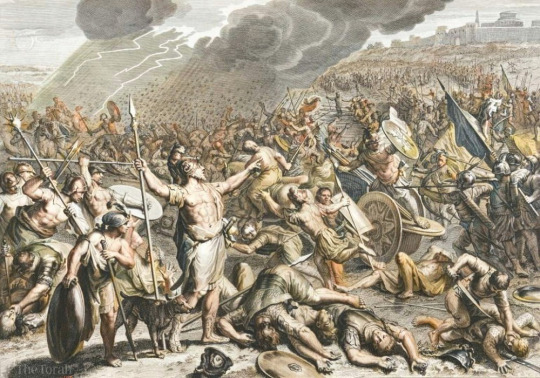
View On WordPress
#bible interpretation#biblical ethics#deuteronomy#deuteronomy 7#ethics#god&039;s covenant loyalty#hermeneutics#holiness#holy god#holy war#immorality#injustice#justice#killing#listening#morality#moses#spiritual life
0 notes
Text
The Spirit’s Convicting Ministry to the World
In the NT, God the Holy Spirit took on a new ministry after Jesus returned to heaven (John 16:7-15; cf., Acts 1:6-8; 2:1-4; 15:7-9). Part of His ministry is to believers, and part is to unbelievers. Concerning the Spirit’s ministry to believers, Jesus said, “I tell you the truth, it is to your advantage that I go away; for if I do not go away, the Helper will not come to you; but if I go, I will…

View On WordPress
#Acts 1:6-8; 2:1-4; 15:7-9#atonement#Biblical Ethics#Biblical Exegesis#Biblical interpretation#Christian living#Christian Witness#Christian worldview#Conviction of Sin#Discipleship#divine guidance#eternal destiny#Evangelism#God&039;s Work in Believers#gospel message#gospel of grace#Grace and faith#Helper (Holy Spirit)#Holy Spirit Ministry#John 16:7-15#Judgment of Satan#Kingdom of God#New Testament Theology#Pentecost#preaching the gospel#Redemption in Christ#repentance#Righteousness in Christ#salvation#Salvation through Faith
0 notes
Text
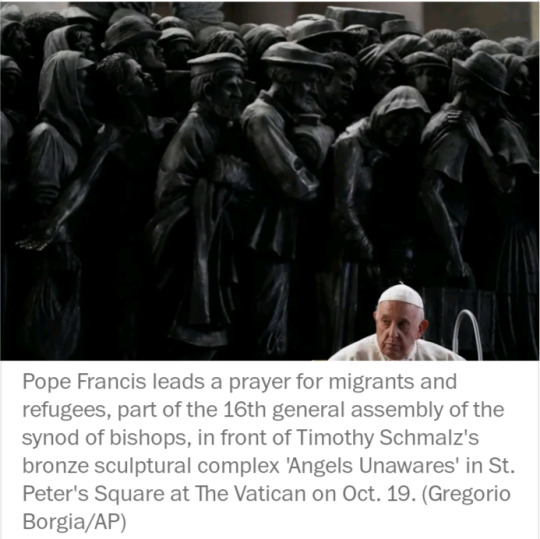
Vatican synod ends with divide over women deacons and LGBTQ+
Sorry, bishops, but "tradition" is no excuse when the answers are so easy.
"Deacon" is a job like any other. The central question is not whether we women should do it, but whether our experience, expertise, and God-given gifts enable us to do it.
As with all job applicants, these questions must be answered on a case-by-case basis. This will be just as true when the time comes to consider women in the priesthood.
Being LGBTQIA is not an act of will; it is an act of God that can be clearly seen in one's genetic map. Science satisfies Romans 1:20.
Even Paul said that priests should only be celibate if they could. There is literally no biblical prohibition of married priests.
None of this is revolutionary, liberal, perverted, or destructive. There is nothing in the Bible to prohibit any of this so-called colonialism, but everything in the Bible to command it.
The question for bishops who use human constructs to maintain the oppression and exclusion of so many of God's people is this: Do you follow Christ, or do you follow the Church?
It's not the same thing.
0 notes
Text
An Introduction to Biblical Ethics: Walking In The Way of Wisdom!!!
We need to have biblical ethics in our lives. "An Introduction to Biblical Ethics: Walking In The Way of Wisdom" shows us what we must do as we develop godly attitudes and behaviors. Biblical ethics encourages us to live a godly lifestyle for God.
As we study the Bible, we need to learn biblical ethics. By learning biblical ethics, we can live the godly lifestyle that God wants us to live. “An Introduction to Biblical Ethics: Walking In The Way of Wisdom” shows what we need to do in our lives. It shows us the attitudes and the behaviors we need to develop. Biblical ethics cannot be taken out of our Christian lifestyles. We need to let…
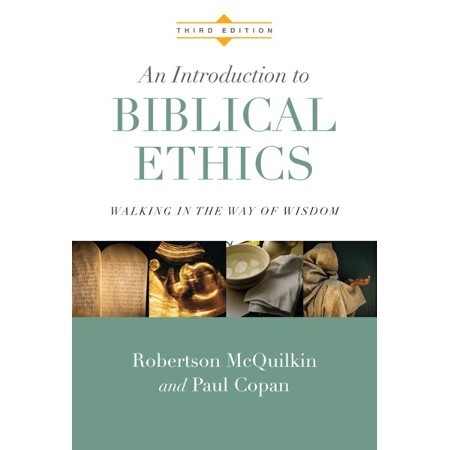
View On WordPress
0 notes
Text
'"Good and evil are the prejudices of God" — said the snake.'
- Friedrich Nietzsche,
'The Gay Science'
#good and evil#good#evil#morality#quotes#biblical quotes#philosophy#nietzsche#nietzsche quotes#literature quotes#reading#philosophy quotes#existentialism#postmodernism#ethics#deceit#moral relativism#relativism#faith#religion#the bible#christianity#the fall#adam and eve#snake#eden
45 notes
·
View notes
Text

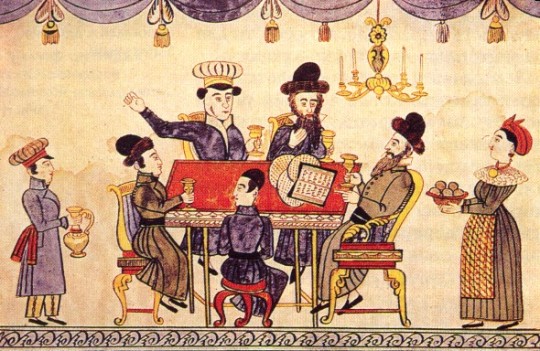












וְהִגַּדְתָּ לְבִנְךָ
(שמות יג, ח)
#faith#holyland#jewish judaism#judaism#holiness#passover#pesach#jewish#holiday#biblical#ten commandments#ethics#matzo#bible scripture#sacred
12 notes
·
View notes
Text
Unveiling the Diverse Spectrum of Laws in the Bible: An In-Depth Exploration
Unraveling the Multifaceted Laws of the Bible

Introduction
The Bible stands as a reservoir not only of spiritual wisdom but also of the laws that governed ancient Israelite civilization. These laws, spanning moral, ceremonial, civil, health, and social justice domains, offer profound insights into the societal norms and values of their era. Let's delve into the rich tapestry of laws found within the pages of the Bible.
Delving into Biblical Legal Dimensions
Moral Laws:
Central to the ethical framework of Judeo-Christian tradition, moral laws, epitomized in the Ten Commandments, delineate the fundamental principles guiding human behavior. Ranging from honoring parents to abstaining from theft and adultery, these laws form the moral cornerstone of Judeo-Christian ethics.
Ceremonial Laws:
Found predominantly in books such as Leviticus and Numbers, ceremonial laws dictate the rituals, sacrifices, and religious observances integral to Israelite worship and communal life. Emphasizing purity, holiness, and reverence, these laws underscore the importance of spiritual devotion in the life of ancient Israelites.
Ancient Israelite laws :
Governance, justice administration, and societal order within ancient Israelite civilization were regulated by civil laws. Covering diverse matters such as property rights, contractual agreements, and legal procedures, these laws aimed to foster stability and equity among the populace.
Health and Hygiene Laws:
Reflecting a holistic understanding of well-being encompassing both physical and spiritual dimensions, health and hygiene laws in the Bible stress the importance of cleanliness and physical health within the community. From dietary restrictions to regulations concerning contagious diseases, these laws aimed to promote the overall welfare of society.
Social Justice Laws:
Advocating for the fair and equitable treatment of all members of society, particularly the marginalized and vulnerable, social justice laws in the Bible mandate provisions for widows, orphans, and foreigners. Rooted in principles of compassion, fairness, and solidarity, these laws embody the essence of a just society.
Addressing Common Queries
How do biblical laws influence contemporary legal systems?
The principles of justice, fairness, and compassion embedded in biblical laws have exerted a profound influence on modern legal frameworks, shaping concepts of human rights, equality, and social welfare.
Are biblical laws still relevant in today's society?
While some laws may be culturally specific or tied to historical contexts, the moral and ethical principles enshrined in biblical laws continue to inspire and inform contemporary debates on morality, justice, and human dignity.
Conclusion
The laws articulated within the Bible span a wide spectrum, encompassing moral, ceremonial, civil, health, and social justice dimensions. By exploring these laws, we gain not only a deeper understanding of ancient Israelite society but also timeless insights into the principles that underpin a just and ethical society.
#Bible laws#Biblical legal dimensions#Ancient Israelite laws#Moral laws#Ceremonial laws#Civil laws#Health and hygiene laws#Social justice laws#Judeo-Christian ethics#Ten Commandments#Rituals and sacrifices#Governance in ancient Israel#Physical and spiritual well-being#Marginalized and vulnerable groups#Contemporary legal systems#Human rights and equality#Cultural specificity of laws#Historical context of biblical laws#Biblical insights#Judeo-Christian tradition#Israelite societal norms#Spiritual devotion#Social welfare in the Bible#Laws in the Bible#Legal principles#Moral guidelines#Social justice in religion#Historical legal systems#Ethical standards#Religious observances
1 note
·
View note
Text
Unveiling the Diverse Spectrum of Laws in the Bible: An In-Depth Exploration
Unraveling the Multifaceted Laws of the Bible
Introduction
The Bible stands as a reservoir not only of spiritual wisdom but also of the laws that governed ancient Israelite civilization. These laws, spanning moral, ceremonial, civil, health, and social justice domains, offer profound insights into the societal norms and values of their era. Let's delve into the rich tapestry of laws found within the pages of the Bible.
Delving into Biblical Legal Dimensions
Moral Laws:
Central to the ethical framework of Judeo-Christian tradition, moral laws, epitomized in the Ten Commandments, delineate the fundamental principles guiding human behavior. Ranging from honoring parents to abstaining from theft and adultery, these laws form the moral cornerstone of Judeo-Christian ethics.
Ceremonial Laws:
Found predominantly in books such as Leviticus and Numbers, ceremonial laws dictate the rituals, sacrifices, and religious observances integral to Israelite worship and communal life. Emphasizing purity, holiness, and reverence, these laws underscore the importance of spiritual devotion in the life of ancient Israelites.
Civil Laws:
Governance, justice administration, and societal order within ancient Israelite civilization were regulated by civil laws. Covering diverse matters such as property rights, contractual agreements, and legal procedures, these laws aimed to foster stability and equity among the populace.
Health and Hygiene Laws:
Reflecting a holistic understanding of well-being encompassing both physical and spiritual dimensions, health and hygiene laws in the Bible stress the importance of cleanliness and physical health within the community. From dietary restrictions to regulations concerning contagious diseases, these laws aimed to promote the overall welfare of society.
Social Justice Laws:
Advocating for the fair and equitable treatment of all members of society, particularly the marginalized and vulnerable, social justice laws in the Bible mandate provisions for widows, orphans, and foreigners. Rooted in principles of compassion, fairness, and solidarity, these laws embody the essence of a just society.
Addressing Common Queries
How do biblical laws influence contemporary legal systems?
The principles of justice, fairness, and compassion embedded in biblical laws have exerted a profound influence on modern legal frameworks, shaping concepts of human rights, equality, and social welfare.
Are biblical laws still relevant in today's society?

While some laws may be culturally specific or tied to historical contexts, the moral and ethical principles enshrined in biblical laws continue to inspire and inform contemporary debates on morality, justice, and human dignity.
Conclusion
The laws articulated within the Bible span a wide spectrum, encompassing moral, ceremonial, civil, health, and social justice dimensions. By exploring Moral laws , we gain not only a deeper understanding of ancient Israelite society but also timeless insights into the principles that underpin a just and ethical society.
#Bible laws#Biblical legal dimensions#Ancient Israelite laws#Moral laws#Ceremonial laws#Civil laws#Health and hygiene laws#Social justice laws#Judeo-Christian ethics#Ten Commandments#Rituals and sacrifices#Governance in ancient Israel#Physical and spiritual well-being#Marginalized and vulnerable groups#Contemporary legal systems#Human rights and equality#Cultural specificity of laws#Historical context of biblical laws#Biblical insights#Judeo-Christian tradition#Israelite societal norms#Spiritual devotion#Social welfare in the Bible#Laws in the Bible#Legal principles#Moral guidelines#Social justice in religion#Historical legal systems#Ethical standards#Religious observances
1 note
·
View note
Text
True Faith (Hebrews 11:1-3, 13-19)
People of faith allow their belief in what is coming to shape how they live now in daily life.
Now faith is confidence in what we hope for and assurance about what we do not see. This is what the ancients were commended for.
By faith we understand that the universe was formed at God’s command, so that what is seen was not made out of what was visible….
All these people were still living by faith when they died. They did not receive the things promised;��they only saw them and welcomed…
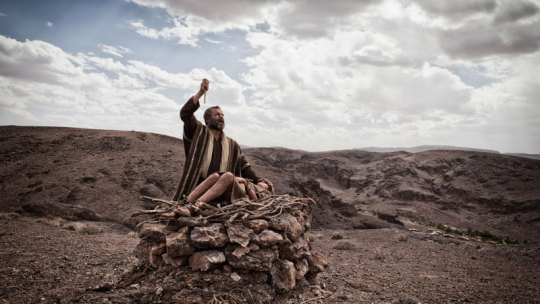
View On WordPress
#abraham#belief#biblical ethics#christian belief#christian faith#christian life#ethics#faith#faith and reason#faith formation#god&039;s promise#hebrews#hebrews 11#isaac#obedience#sacrifice#spiritual life
0 notes
Text
Does it scare you to think about what Satan is trying to do to your kids?
What are you doing to make sure he doesn’t? Are you teaching your children about God?
Are you setting an example for them showing them what faithfulness looks like? Do you take them to church and Bible class?
Do you talk to them about the lies and immorality that the devil has made normal?
Do you keep them from playing video games and watching shows that slip in things that will take them off course? Do you pray for them and over them?
Don’t think for one second that you can let up or slack off. Evil doesn’t.

#Scripture#Holy Book#Christian Faith#Religious Text#Old Testament#New Testament#Gospel#Jesus Christ#Divine Revelation#Word of God#Biblical Stories#Salvation#Faith and Belief#Ten Commandments#Christian Doctrine#Prophets#Miracles#Redemption#Christian Ethics#Biblical Interpretation#today on tumblr
1 note
·
View note
Text
Are there other reasons why many Christian denominations discourage/condemn divorce besides what the Bible says?
While the primary reasons many Christian denominations discourage or condemn divorce stem from biblical teachings, there are also additional reasons rooted in theological, moral, and practical considerations:
Sacredness of Marriage: Many Christian denominations view marriage as a sacred covenant ordained by God, and divorce is seen as a violation of that covenant. They emphasize the importance…

View On WordPress
#Biblical teachings#Christian ethics#Community support#Divorce#Family stability#God&039;s love#Marriage#Personal growth#Sacred covenant#Social impact
0 notes
Text
i am so bad at playing games
#was trying to find a good spot to assassinate this no ethics scientist guy and accidentally died to his magic electricity which he was#making from a biblical artifact. or supplying energy to it one or the other thing#touched a metal railing and boom desynchrounised. how do u spell dat#erin plays ASSASSin's creed syndicate#ASSASS GAME TIME#<- tag for whenever i play these dumbass ubisoft games
0 notes
Text
The religious organization in Wilmington, Delaware, is tasked with the continual struggle to make ancient teachings relevant to modern society. This includes The Ten Commandments, biblical laws that guide our moral lives. But how are these commandments interpreted and employed in the 21st century?
0 notes
Text
Links & Quotes
Some links and quotes that caught my eye this week.
Are you looking for a Christmas gift for your pastor? Check out my book Shepherd Leadership. I have lots of new content every week, which you can check out on my YouTube channel.
“We rise no higher when we pull others down, yet when we stoop to serve, we conquer.” —Dick Brogden, in Proverbs: Amplified and Applied
“Truth is incontrovertible. Panic may resent it. Ignorance may deride it. Malice…

View On WordPress
#apologetic#biblical history#Dick Brogden#economy#God&039;s Word#historicity#humility#J.M. Barrie#New Testament#quotes#Sean McDowell#shepherd leadership#Smith Wigglesworth#T.M. Moore#truth#video#Winston Churchill#work ethic
1 note
·
View note
Text
Jesus’ Ascension and Session
After Jesus’ resurrection, he appeared to many on several occasions. His final appearance was to His apostles. Luke wrote, “And He led them out as far as Bethany, and He lifted up His hands and blessed them. While He was blessing them, He parted from them and was carried up into heaven” (Luke 24:50-51). And in Acts we’re told, “He was lifted up while they were looking on, and a cloud received Him…

View On WordPress
#Advocacy#Angels and authorities#Ascension#Biblical Commentary#Biblical Studies#Building of the place#Christ&039;s humiliation#Christian beliefs#Christian doctrine#Christian eschatology#Christian Ethics#Christian faith#Christian leadership#Christian living#Christian Ministry#Christian teaching#Christian theology#Crowned with glory and honor#Divine dignity#Divine nature#divine plan#Ephesians 1:20#Eschatology#eternal glory#Exaltation of Christ#Gifts of the Spirit#Glory of God#God-Man#Headship over all things#Heaven
0 notes
Text
In this book you focus on the idea of gender as a global ‘phantasm’ – this charged, overdetermined, anxiety- and fear-inducing cluster of fantasies that is being weaponised by the right. How did you go about starting to investigate that?
Judith Butler: When I was burned in effigy in Brazil in 2017, I could see people screaming about gender, and they understood ‘gender’ to mean ‘paedophilia.’ And then I heard people in France describing gender as a Jewish intellectual movement imported from the US. This book started because I had to figure out what gender had become. I was naïve. I was stupid. I had no idea that it had become this flash point for right-wing movements throughout the world. So I started doing the work to reconstruct why I was being called a paedophile, and why that woman in the airport wanted to kill me with the trolley.
I’m not offering a new theory of gender here; I’m tracking this phantasm’s formation and circulation and how it’s linked to emerging authoritarianism, how it stokes fear to expand state powers. Luckily, I was able to contact a lot of people who translated Gender Trouble in different parts of the world, who were often gender activists and scholars in their own right. They told me about what’s happening in Serbia, what’s happening in Brazil, Chile, Argentina, Russia. So I became a student of gender again. I’ve been out of the field for a while. I stay relatively literate, of course, but I’ve written on war, on ethics, on violence, on nonviolence, on the pandemic… I’m not in gender studies all the time. I had to do a lot of reading.
There’s a lot of focus in the book on how the anti-gender movement has moved across the world in the past few decades, and how it’s inextricable from Catholic doctrine. It was clarifying for me; domestic anti-trans movements in the UK mostly self-identify as secular.
Judith Butler: In the UK, and even in the US, people don’t realise that this anti-gender ideology movement has been going on for some time in the Americas, in central Europe, to a certain degree in Africa, and that it’s arrived in the US by different routes, but it’s arrived without announcing its history. It became clear to me that a lot of the trans-exclusionary feminists didn’t realise where their discourse was coming from. Some of them do; some people who call themselves feminists are aligned with right-wing positions, and it’s confusing, but there it is.
There’s an uncomfortable history of fascist feminism in movements like British suffragism, for instance.
Judith Butler: Yes, and of racism. But when Putin made clear that he agreed with JK Rowling, she was probably surprised, and she rightly said, ‘no, I don’t want your alliance’, but it was an occasion for her to think about who she’s allying herself with, unwittingly or not. The anti-gender movement was first and foremost a defence of Biblical scripture, and of the idea that God created man and woman, and that the human form exists only in this duality and that without it, the human is destroyed – God’s creation is destroyed. So that morphed, as the Vatican’s doctrine moved into Latin America, into the idea that people who advocate ‘gender’ are forces of destruction who seek to destroy man, woman, the human, civilisation and culture.
5K notes
·
View notes